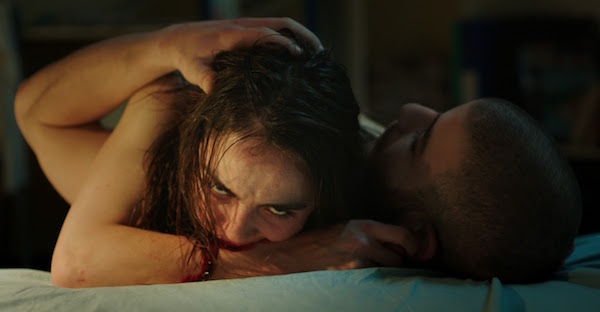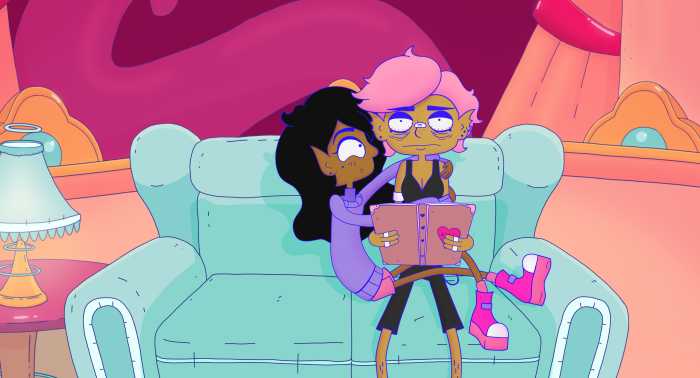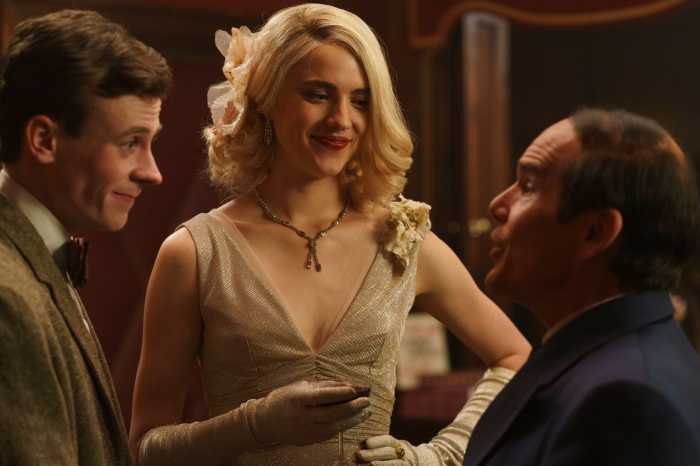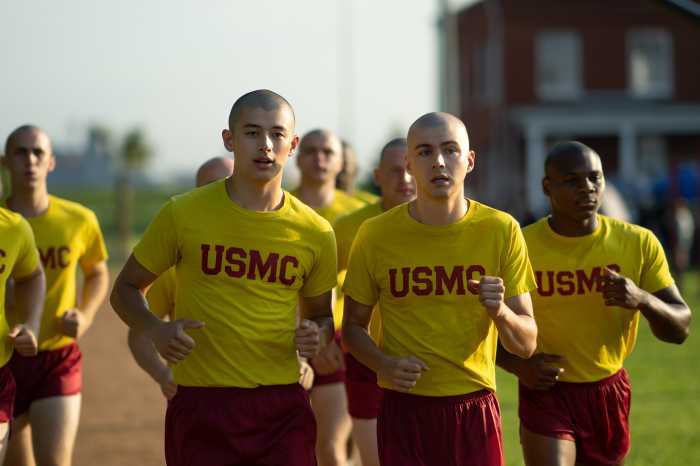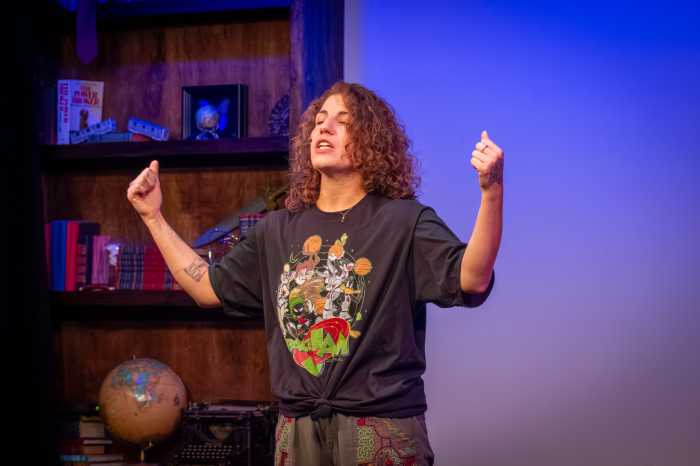Garance Marillier and Rabah Nait Oufella in Julia Ducournau’s “Raw.” | FOCUS WORLD
“Raw” is a vivid, visceral coming-of-age film. Writer and director Julia Ducournau has created an hypnotic — though for many what could be a very unpleasant — drama about Justine (Garance Marillier), a first-year student struggling through rush week at a veterinary medical school in France.
Justine is a vegetarian. Early in the film, she is upset when she discovers a slice of meat in her mashed potatoes — a sign of bad things to come. After she eats a raw rabbit kidney as part of her rush week hazing, Justine develops a nasty rash. Adrien (Rabah Nait Oufella), the gay man she rooms with, and her older sister, Alexia (Ella Rumpf), both of whom also attend the vet school, have less difficulty with eating the raw rabbit kidney. But Adrien and Alexia each has greater self-confidence than Justine.
In graphic detail, “Raw” shows Justine’s body rebelling against her. In addition to developing a rash, she vomits up a stringy mess of hair and develops troubles with bleeding. (In a nod to Brian de Palma’s “Carrie,” the new students are covered in blood in one scene.) Though Justine seems to be slowly — if warily — adapting to a new, cutthroat environment, she opts for going to sleep rather than attending all-night parties that are as intense as the classes where the students must prepare horses for medical procedures and perform autopsies on chimps.
Julia Ducournau’s coming-of-age horror show pushes viewers to identify
Ducournau shrewdly maximizes the viewer’s identification with the discomforts Justine endures — whether the claustrophobic, sweaty feeling she has working her way through a crowd of people or walking through a darkened laboratory and seeing bottled medical specimens revealed by flashes of light. These scenes are rattling and may put off some viewers, but Ducournau is unapologetic in forcing empathy for Justine as she tries to process the chaos around her.
The few moments of tenderness in the film involve Adrien, when he is kissing another man, getting a blowjob, or having his ear fondled by a truck driver who approaches him and Justine in a parking lot. In contrast, for Justine, a virgin, sexuality is more fraught. When she and another student start kissing — they are both completely doused in paint at the time — she bites his lip, in a hungry, not sexy way.
Justine, we learn, is testing out her taste for human flesh. In what may be the film’s most disturbing scene, she sucks on a severed finger after a mishap while her sister is giving her a Brazilian wax. This gory moment, at the midpoint of “Raw,” may be the catalyst for Justine’s transformation, as she tries to adjust to her new cravings for blood and sex. Ducournau is ambiguous about the meaning of the cannibalism metaphor. It could be a symbol for peer pressure — Justine admits she wasn’t coerced to eat the rabbit kidney — or perhaps it is a sign of her sexual development. Justine and Adrien, stoned and horny one night, unexpectedly engage in animalistic sex, during which she draws blood biting into her own flesh.
Justine and Alexis both become sexually fixated on Adrien, despite his being gay, and Justine becomes jealous that her sister has his cell number and plays video games with him. A sequence in which Justine ogles her shirtless roommate as he plays soccer is as ominous as it is pleasurable. Their relationship grows increasingly unsettling. When Justine’s fellow students shun her, Adrien shows her video that explains why she has become a pariah. It sets off a chain of events that lead to the film’s disturbing climax.
“Raw” benefits from Marillier’s ferocious performance. She is equally compelling as the fragile new student and the aggressor who is literally out for blood. The actress’ body language conveys Justine’s confusion and internal pain; she is truly uncomfortable in her own skin. The audience, meanwhile, may have trouble not simply screaming “Stop!” as she scratches the rash on her body. Ducournau films Justine in close-ups — under the sheets, and in confined spaces like bathrooms — that emphasize her vulnerability. The considerable screen time she spends covered in blood, paint, or other substances make viewers feel the ickiness she feels. The impact is incredibly palpable.
Both Rumpf and Oufella lend fine support as Alexis and Adrien, fleshing out compelling storylines that help deliver the film’s satisfying payoff.
“Raw,” which won the International Federation of Film Critics Prize at Cannes last year, will be a difficult movie for many viewers. For those who can stomach it, however, it is rewarding — and certainly unforgettable.
RAW | Directed by Julia Ducournau | Focus World | In French, with English subtitles | Opens Mar. 10: Angelika Film Center, 18 W. Houston St. at Mercer St. | angelikafilmcenter.com

